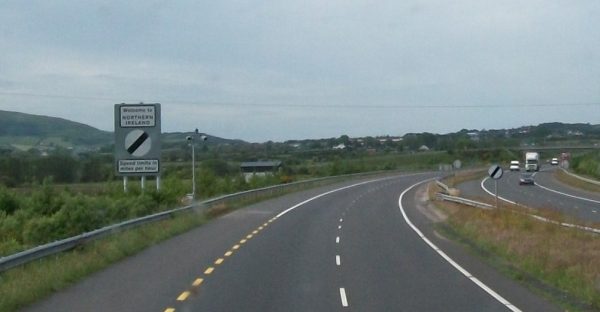
Brexit negotiations have stalled on what to do about the Irish border. Some want to implement a hard border between Northern Ireland and the Republic of Ireland to control the flow of migrants into the United Kingdom. Others fear that a hard border will reignite violence that plagued the region in recent memory. Sociologists explain why peace is so fragile in this region by uncovering the structural, religious, and political roots of the conflict.
The conflict in Northern Ireland is religious, but that does not mean it is about doctrine. Religion does not just describe what individuals believe regarding the supernatural. It is a meaningful social identity that shapes how people experience and perceive the world. This is more true in Northern Ireland than in other parts of Europe. Protestants and Catholics not only worship in different churches, they also tend to live in different communities, send their children to different schools, and drink in different pubs. Through participating in these rituals, people in Northern Ireland construct strong identification with one or the other religious group, even if they do not personally believe in God at all.
- Claire Mitchell. 2005. “Behind the Ethnic Marker: Religion and Social Identification in Northern Ireland.” Sociology of Religion 66(1): 3-21.
Religion does not just signify group membership in Northern Ireland. It also signifies access to power and resources. Protestants there have been legally and socially privileged for centuries. This inequality set the stage for inter-group conflict. Because they constructed their social identity in opposition to Catholics, Protestants tended to see Catholic social ascent as a sign of their own descent. When Catholics mobilized for civil rights in the 1960s, the British-backed Protestants responded harshly. Violent repression strengthened the sense of group identification among Catholics. This collective victimhood identity was used to mobilize some Catholics to join violent resistance groups. A wave of bloodshed lasted for 30 years.
- John D. Brewer and Gareth I. Higgins. 1998. Anti-Catholicism in Northern Ireland, 1600-1998. St. Martin’s Press, Inc.
- Gary Easthope. 1976. “Religious War in Northern Ireland.” Sociology 10(3): 427-450.
- Robert W. White. 1989. “From Peaceful Protest to Guerrilla War: Micromobilization of the Provisional Irish Republican Army.” American Journal of Sociology 94(6): 1277-1302.
Conflict in Northern Ireland is more muted today. Globalization and trade liberalization have reduced the significance of the Irish border. The Good Friday Agreement signed in 1998 charted a path forward for peaceful power sharing in the territory. However, sectarianism did not end with the stroke of a pen. In the years following the agreement, residential segregation in Northern Ireland has increased, and periodic violence still occurs. The government has done little to dismantle structural sources of inequality, such as integrating schools. Instead, lawmakers place the blame of lasting inequality on bad individual actors. As a result, the Good Friday Agreement has not ushered in the era of religious and political cooperation that many hoped for.
- James Anderson and Liam O’Dowd. 1999. “Contested Borders: Globalization and Ethno-national Conflict in Ireland.” Regional Studies 33(7): 681-696.
- Robbie McVeigh and Bill Rolston. 2007. “From Good Friday to Good Relations: Sectarianism, Racism, and the Northern Ireland State.” Race and Class 48(4): 1-23.
The situation in Northern Ireland has parallels to social conflicts elsewhere, including racial inequality in the United States and South Africa. Social identities, such as religion and race, give meaning and texture to people’s lives. However, when one group’s success is defined by another group’s failure, harmful competition and conflict can tear at the fabric of society. Peace depends not only on individuals seeking and offering forgiveness, but on structural changes and daily rituals that construct an appreciation for differences in society.

Comments